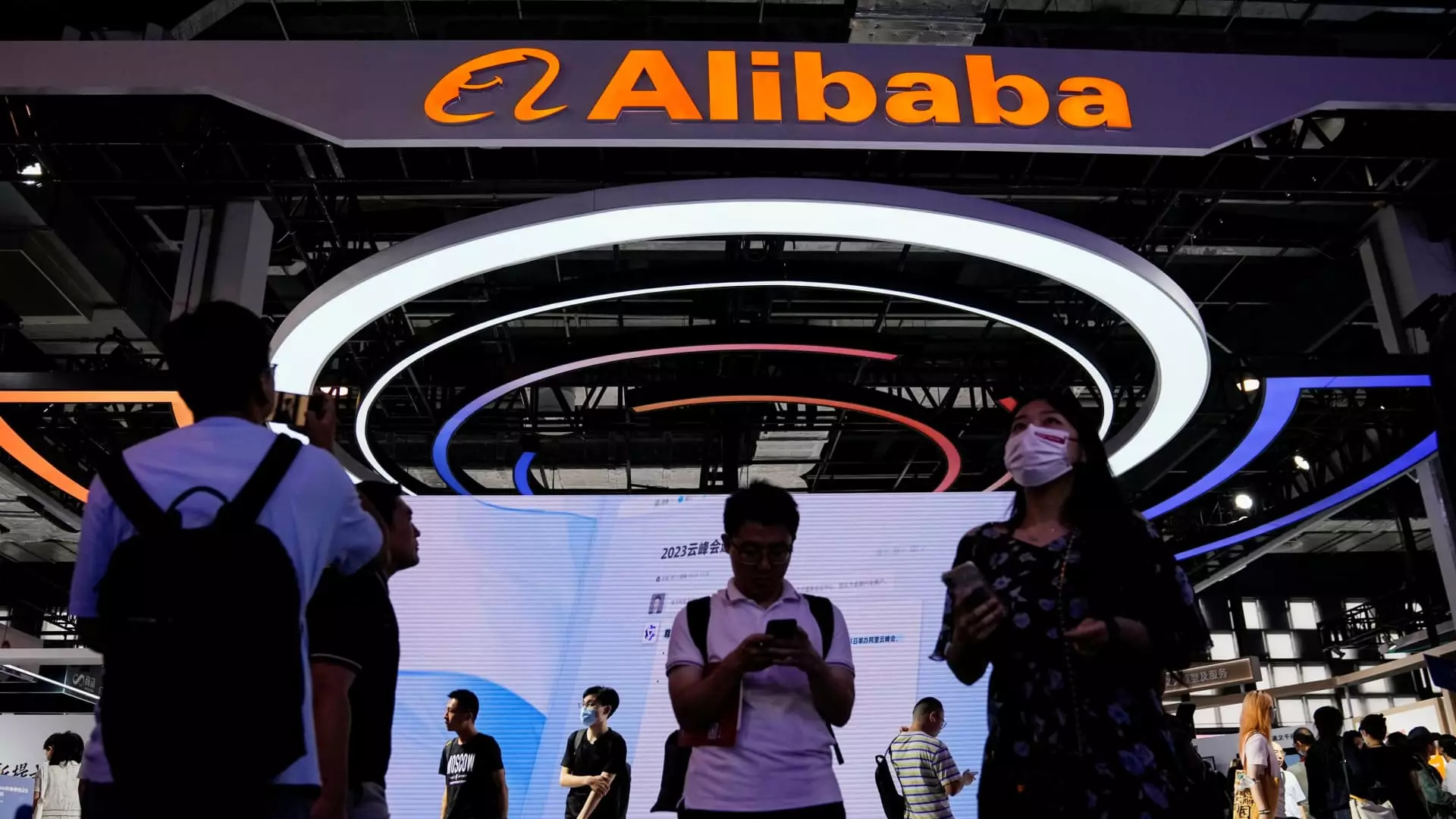In a move indicative of the fierce competition permeating the artificial intelligence market, Chinese tech giant Alibaba announced unprecedented price reductions of up to 85% on its large language models (LLMs). This strategic decision, revealed through a WeChat post by Alibaba Cloud, is part of a broader effort to enhance its appeal in the burgeoning AI sector. The price cuts specifically target the Qwen-VL model, which is designed to comprehend and analyze both text and images. This initiative positions Alibaba as a significant player in the rapidly evolving landscape of AI technology.
Despite the magnitude of the price cuts, Alibaba’s stock showed minimal movement, closing just 0.5% higher on the last trading day of the year in Hong Kong. This subdued reaction underscores the complex relationship between corporate announcements and market perceptions, particularly in a sector grappling with volatility and uncertainty. Although significant reductions in pricing can stimulate interest and potential sales, market analysts appear to be somewhat skeptical about the broader implications for Alibaba’s profitability and market share.
The announcement also highlights the intensifying competition among China’s tech titans. Major companies, including Tencent, Baidu, JD.com, Huawei, and ByteDance, have launched their own language models over the past 18 months, seeking to harness the burgeoning excitement surrounding AI technologies. This intense rivalry is reshaping the industry, compelling firms to re-evaluate their pricing strategies and explore innovative ways to attract businesses to their products. The price reduction initiative is not an isolated incident; Alibaba previously implemented similar cuts earlier in the year, with reductions of up to 55% across various cloud offerings in February and even deeper cuts on its Qwen AI model in May, which saw prices slashed by as much as 97%.
At the heart of Alibaba’s current strategy lies the importance of large language models, which play a critical role in contemporary AI applications. These models are trained on extensive datasets to produce humanlike responses, effectively serving as the backbone for generative AI systems like OpenAI’s ChatGPT. Alibaba has chosen to tailor its LLM initiatives towards the enterprise segment, distinguishing itself from competitors focused more on consumer-facing applications. By prioritizing business needs, Alibaba aims to penetrate the B2B market more effectively, highlighting its understanding of the unique demands of enterprise clients.
The reception of Alibaba’s Qwen models has been resoundingly positive among enterprises. As indicated by company statements, over 90,000 corporate users have already deployed the Qwen models, suggesting a strong demand within business communities for advanced AI capabilities. This level of adoption reinforces the notion that, despite the significant price cuts, there is a pre-existing interest in Alibaba’s offerings that may translate into sustained growth for the company in the AI sector.
As China positions itself as a global leader in AI technologies, the implications of Alibaba’s price cuts extend beyond just market dynamics. They reflect a broader trend towards democratizing access to advanced AI tools, particularly for small and medium-sized enterprises (SMEs) that may have been deterred by high costs. Additionally, these price adjustments may pave the way for more collaborative innovations in the sector, encouraging startups and developers to leverage powerful AI models to create tailored solutions for various industries.
Alibaba’s strategic price cuts serve as a critical juncture in the competitive AI landscape, demonstrating the company’s commitment to enhancing its technological footprint and fostering demand among enterprise users. As competition continues to mount, the actions taken by Alibaba and its peers will shape not just the future of AI products in China, but also potentially redefine the broader global technology market. The outcome of this strategic initiative remains to be seen, but it undeniably marks a significant step in Alibaba’s journey through the complex and rapidly evolving realm of artificial intelligence.

